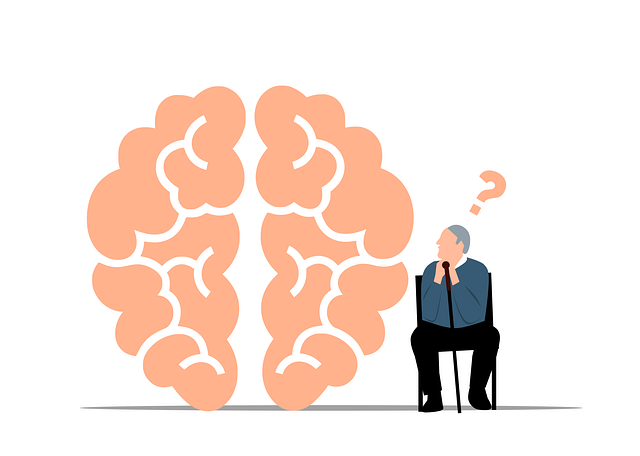Emotion regulation techniques are key components of effective Boulder Chronic Pain Therapy, addressing complex emotions linked to chronic pain. Mindfulness practices, cognitive reframing, and social skills training empower patients to manage pain by fostering healthy emotional expression and supportive environments. Short-term tools like mindful breathing and journaling, combined with long-term coaching programs, offer personalized coping strategies for stress reduction and emotional tracking. Enhancing mental health awareness reduces stigma and promotes open conversations, contributing to a holistic approach that improves quality of life.
Emotion regulation techniques play a pivotal role in managing chronic pain, offering valuable tools for those navigating Boulder Chronic Pain Therapy. This comprehensive guide explores effective strategies to tame emotional distress, focusing on mindfulness, meditation, and cognitive behavioral approaches. Discover practical ways to integrate these techniques into daily life, fostering long-term resilience and enhancing overall well-being.
- Understanding Emotion Regulation and Its Impact on Chronic Pain
- The Role of Mindfulness and Meditation in Boulder Chronic Pain Therapy
- Cognitive Behavioral Techniques for Managing Emotional Distress
- Practical Strategies for Daily Implementation and Long-Term Success
Understanding Emotion Regulation and Its Impact on Chronic Pain

Emotion regulation techniques play a pivotal role in managing chronic pain, especially in Boulder Chronic Pain Therapy settings. Chronic pain is often accompanied by intense and complex emotions, which can exacerbate the pain experience if left unaddressed. Understanding emotion regulation involves recognizing and managing these feelings effectively to foster resilience and improve overall well-being. By teaching individuals skills to recognize and control their emotional responses, therapy can help them navigate the challenges of persistent pain with greater ease.
This process involves a range of strategies such as mindfulness practices, cognitive reframing, and social skills training. For instance, empathy building strategies can create supportive environments where individuals feel understood and validated, which is crucial for mental health awareness. Additionally, these techniques empower patients to express their emotions in healthy ways, enhancing their ability to cope with pain and improving their overall quality of life.
The Role of Mindfulness and Meditation in Boulder Chronic Pain Therapy

Mindfulness and meditation have emerged as powerful tools within Boulder Chronic Pain Therapy, offering individuals coping with persistent pain a unique approach to manage their emotional well-being. These practices, often integrated into comprehensive therapy programs, aim to enhance one’s ability to navigate stress reduction methods and boost confidence in dealing with chronic pain.
By focusing on the present moment, mindfulness encourages individuals to observe their thoughts and emotions without judgment, fostering a deeper connection between mind and body. Meditation complements this process by teaching individuals to quiet the mind and reduce mental clutter, thereby minimizing the impact of painful sensations. This combination not only aids in emotional well-being promotion techniques but also empowers individuals to take an active role in their pain management journey.
Cognitive Behavioral Techniques for Managing Emotional Distress

Cognitive Behavioral Techniques (CBT) offer powerful tools for managing emotional distress, particularly in cases like Boulder Chronic Pain Therapy. By focusing on identifying and challenging negative thought patterns, individuals can gain a greater sense of control over their emotions. This involves learning to recognize cognitive distortions, such as catastrophizing or all-or-nothing thinking, which often contribute to feelings of anxiety and depression.
Through CBT, patients develop effective coping skills development, including strategies for self-care practices like mindfulness and relaxation techniques. Additionally, empathy building strategies are integral to this process, as understanding and acknowledging emotions can foster a supportive mindset, enhancing the individual’s ability to navigate challenging situations with resilience.
Practical Strategies for Daily Implementation and Long-Term Success

Incorporating emotion regulation techniques into daily life is a powerful approach to managing chronic pain and enhancing overall well-being, especially in Boulder Chronic Pain Therapy settings. Practical strategies for immediate implementation include mindful breathing exercises, which can be done anywhere, anytime to calm the mind and reduce stress responses. Journaling, another effective tool, allows individuals to track their emotions, identify triggers, and gain valuable insights into their pain experiences, fostering a deeper understanding of themselves.
For long-term success, integrating mental wellness coaching programs can provide ongoing support and guidance. These programs encourage individuals to develop personalized coping strategies tailored to their unique needs. Additionally, Mental Health Awareness plays a pivotal role in reducing stigma, fostering open conversations about emotions, and encouraging those affected by chronic pain to seek appropriate help. The combination of these techniques creates a holistic approach to managing pain, promoting mental wellness, and improving the overall quality of life.
Emotion regulation techniques play a pivotal role in managing chronic pain, offering individuals in Boulder Chronic Pain Therapy powerful tools to enhance their well-being. By integrating mindfulness, meditation, cognitive behavioral approaches, and practical strategies into daily routines, folks can achieve long-term success in navigating emotional distress associated with pain. These evidence-based methods not only alleviate symptoms but also foster a deeper sense of control and resilience, ultimately improving the quality of life.














